airtravel
Latest

Delta’s fully biometric terminal is the first in the US
Delta Air Lines is launching what it calls the first "biometric terminal" in the US. The airline will use facial recognition at check-in, security and boarding inside the international terminal at Atlanta's Hartsfield-Jackson -- similar to systems already in place in Dubai and Australia, but more comprehensive than the biometric checks already in use at other airports around the US.
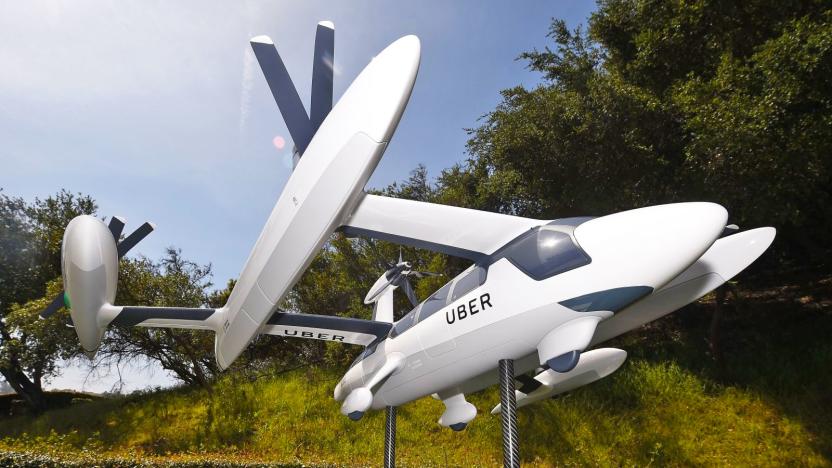
Uber doubles down on partnership with NASA for flying taxi service
Uber had announced last fall that its flying taxi project Elevate would be getting help with its software from NASA. Naturally, you can't do this with just any deal, and the pair signed a Space Act Agreement to make an air traffic control system to handle its aerial taxi fleet. Both have doubled down on their partnership with a second compact wherein the space agency will take Uber's plans and simulate how they'll work in Texas airspace.
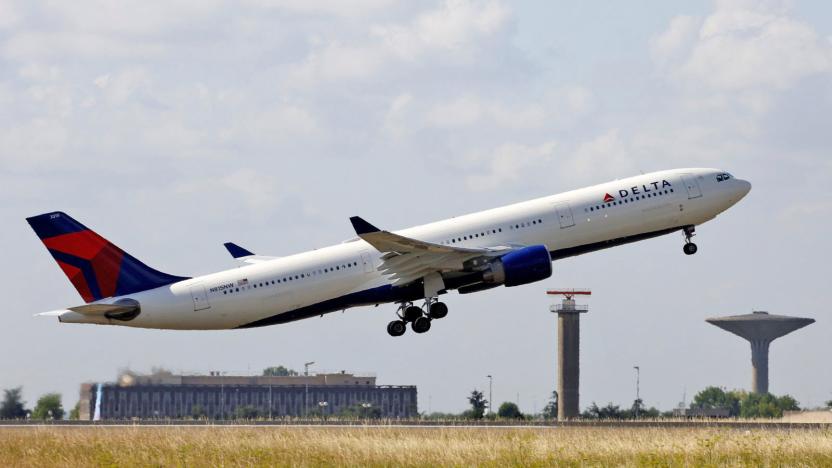
Delta phone app automatically checks you in for your flight
Modern air travel is full of hassles, but one of the most arbitrary is the check-in. Why do I have to manually confirm that I'm flying when I've already paid for tickets and chosen seats? A few airlines around the world have eliminated that drudgery, but now it's coming to a major American airline. Delta has updated its iOS app (there's no update for its Android equivalent yet) with automatic check-in -- you'll get your boarding passes 24 hours before takeoff. In theory, the days of frantic last-minute check-ins are over.
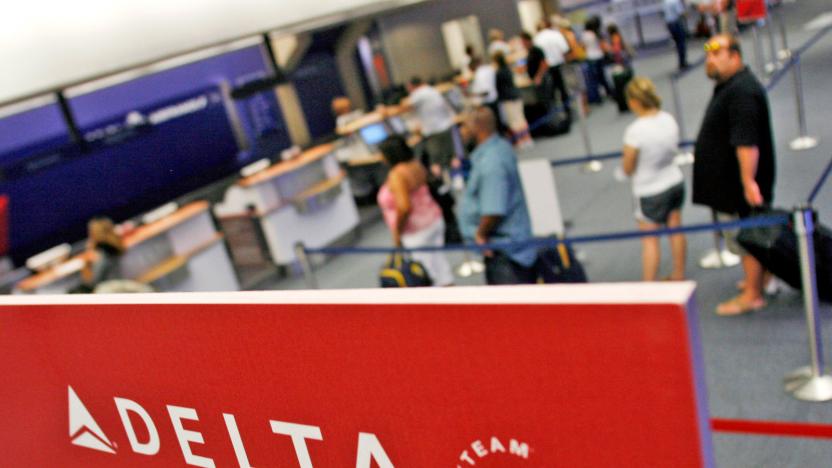
Delta aims to replace boarding passes with fingerprints
Delta is expanding its biometric check-in feature that allows some customers to use their fingerprints instead of a boarding pass. The service was first launched at Ronald Reagan Washington National Airport (DCA) in May and let Delta SkyMiles members enter the Delta Sky Club with their fingerprints rather than a physical ID. Now, those members can use their fingerprints to board their plane.

Denver has the fastest WiFi of any airport in North America
Airports are some of the most miserable places on earth. On top of being charged way too much for food and booze, solid internet connections can be dodgy whether you're connecting to provided WiFi or your cellular network. The folks at Speedtest have done us all a favor and surveyed the offerings at North American airports to suss out the worst to the... surprisingly not-worst. Interestingly enough, a state that legalized recreational marijuana also has the highest uploads and downloads. Denver International boasts 78.22 Mbps downloads and 78.29 Mbps on average, with Speedtest reporting that this actually increased by over 25 percent since its last look.
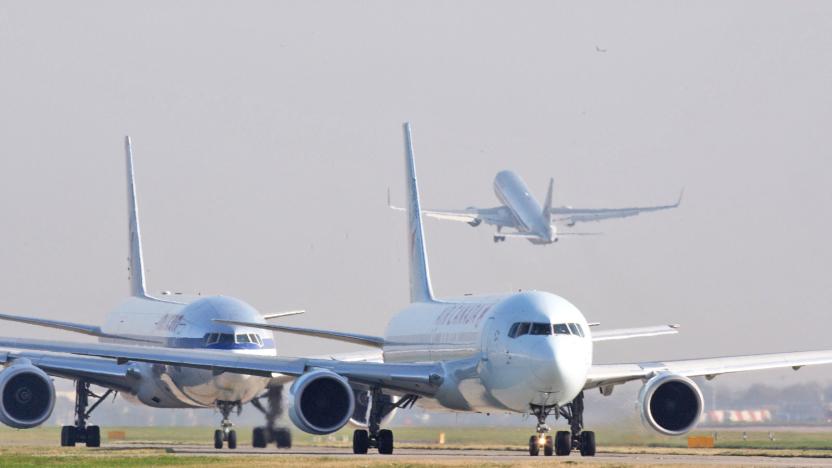
Climate change is making it harder for airplanes to take off
We already know that climate change might make air travel more turbulent. But now it looks like it will impact it in an even more drastic way: A new study in the journal Climatic Change examines how rising air temperatures will affect airplanes' ability to take off. And the results aren't promising.

TSA begins testing fingerprint check-ins at two US airports
It's never a nice experience to stand in line at the airport for hours just to get a pat down when you get to the end. Hopefully, TSA's new biometric fingerprint tech could make air travel a more pleasant experience for most people. Starting this week, the Transportation Security Administration's fingerprint sensors will go through proof-of-concept testing at Hartsfield–Jackson Atlanta International Airport and at Denver International Airport. The test will last for four weeks, and you can try it out for yourself if you registered your fingerprint as part of TSA's PreCheck program.
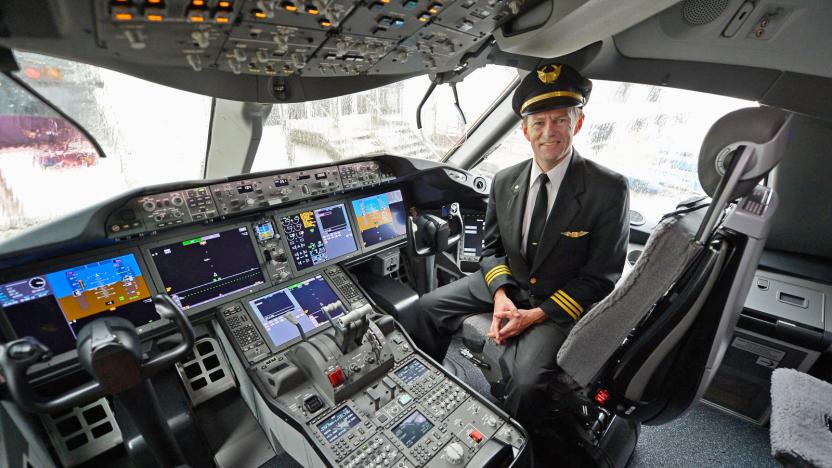
United flight crew inadvertently shares cockpit codes online
You don't need lax airport screening to create security risks aboard flights. As the TSA found out, you just need someone to post the wrong details on the internet. The Wall Street Journal has learned that a United Airlines (yes, it's in the news again) flight attendant mistakenly posted cockpit door access codes online. While the Air Line Pilots Association says the situation has been resolved, the codes haven't changed yet. Until then, pilots will have to be extra-cautious -- they're already supposed to look at would-be visitors, but they just got a reminder that they can't take a valid code for granted.
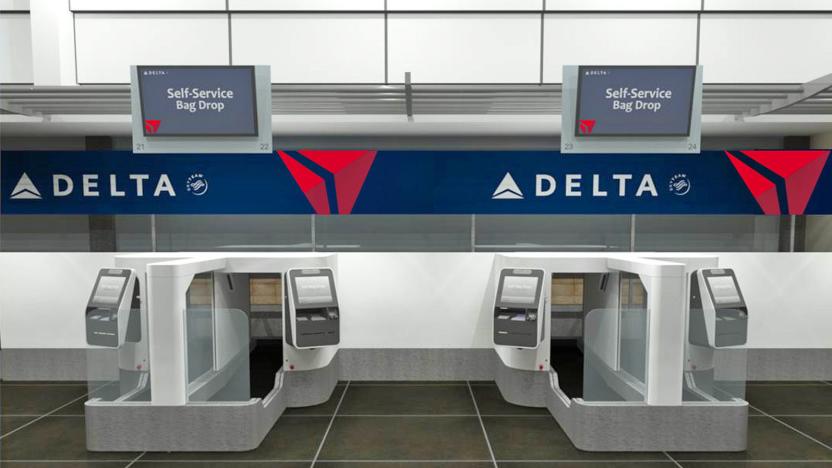
Delta will test face-scanning for checked baggage this summer (updated)
This summer, Delta will test a facial recognition system for checking luggage. The airline says that the move is an effort to save customers time and further streamline the pre-flight process. "One machine will be equipped to test facial recognition technology to match customers with their passport photos through identification verification," the press release says.
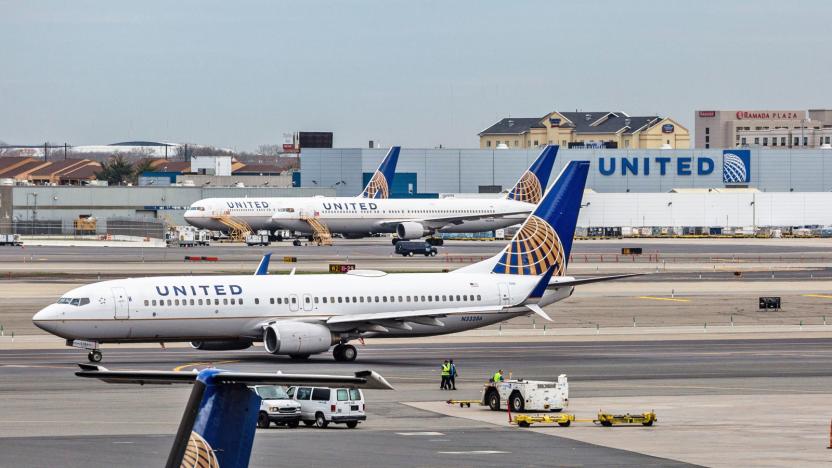
Recommended Reading: Technology hasn't improved the airline experience
How Technology Has Failed to Improve Your Airline Experience Farhad Manjoo, The New York Times It hasn't been a great week for United, but that massive incident served as a harsh reminder that the airline industry has a long list of customer service issues. The New York Times' Farhad Manjoo details how technology has improved ride sharing, vacation rentals and more while the process of booking a flight and air travel still leaves a lot to be desired.

Alaska Airlines: Goodbye 'Virgin America,' hello comfier flights
Virgin America has been the airline of choice for many travelers due to its on-board amenities, including comfy seating, mood lighting, Netflix and Spotify. However, the name won't be around much longer. Alaska Airlines, which bought the airline last year, announced this week that it plans "to retire" the Virgin America name and logo "likely sometime in 2019." As you can imagine, many were upset the beloved brand was being shuttered, including Virgin Group founder Sir Richard Branson.
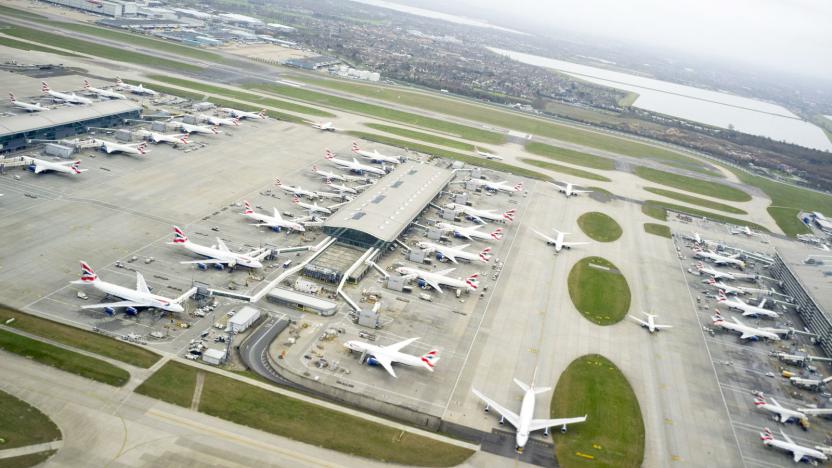
UK also bans devices from cabins on flights from Middle East
The UK has followed the US in restricting electronic devices on flights from several countries in the Middle East and North Africa. Though not identical to the measures implemented by the US, passengers on "select flights" coming to the UK from Turkey, Lebanon, Egypt, Saudi Arabia, Jordan and Tunisia will only be allowed to carry smartphones in the cabin. Any device bigger than 16.0 x 9.3 x 1.5cm, such as laptops, must be stored in checked, hold baggage.

Delta's RFID luggage tracking system now includes a map view
Delta's new RFID luggage tags rolled out earlier this year, making it harder for at least one airline to lose your bags. Now, just in time for the holiday travel rush, Delta has already upgraded their baggage tracking system to include a up-to-the-minute map view of a bag's journey.
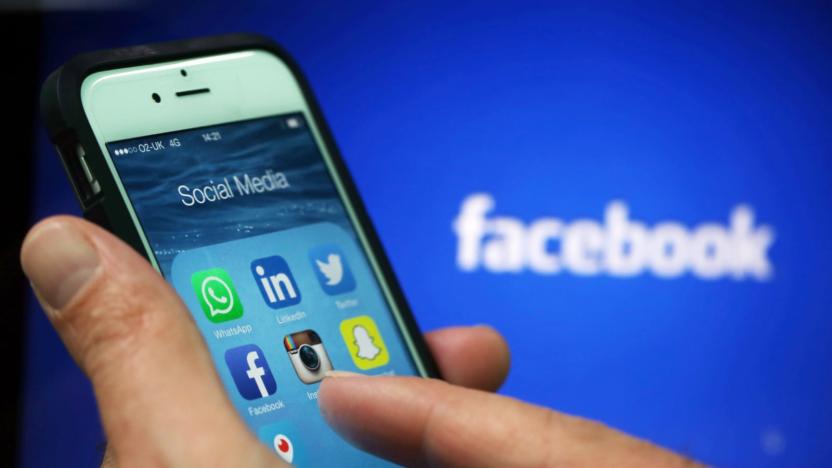
Recommended Reading: Social media's effect on the truth
How technology disrupted the truth Katharine Viner, The Guardian Stories spread around Facebook and Twitter before they're even confirmed to be true. By the time they are or aren't, it doesn't matter. The news already made its way around the internet. Facts are often overlooked and confirmation is something sought only after a tweet is fired off. This piece from The Guardian takes a look at how we got here.

IBM and Gogo join forces to dodge in-flight turbulence
In what might seem like an unlikely partnership, IBM's Watson division and Gogo Inc. (the people who bring you in-flight WiFi) have joined up to make flying a little bit smoother for everyone. As the Wall Street Journal reports, IBM is leveraging its $2 billion purchase of The Weather Company and Gogo's internet connection to give airline pilots a heads up on turbulence.
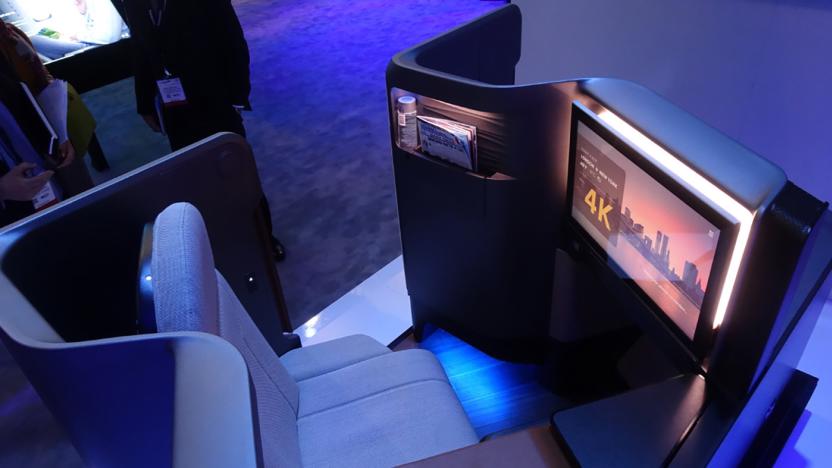
Panasonic's airline seat puts you in a high-tech cocoon
Panasonic has launched the most techie airplane seat we've ever seen, complete with its own app, user programmable mood lighting and a 4K TV. It revealed the product, called "Waterfront," at Hamburg's Aircraft Interiors Expo (yes, there's a show for everything), where it was spotted by The Points Guy. Since this is Panasonic's first foray into high-end airliner seats, it teamed up with B/E Aerospace, Formation Design Group and Denny e-bike designer Teague.
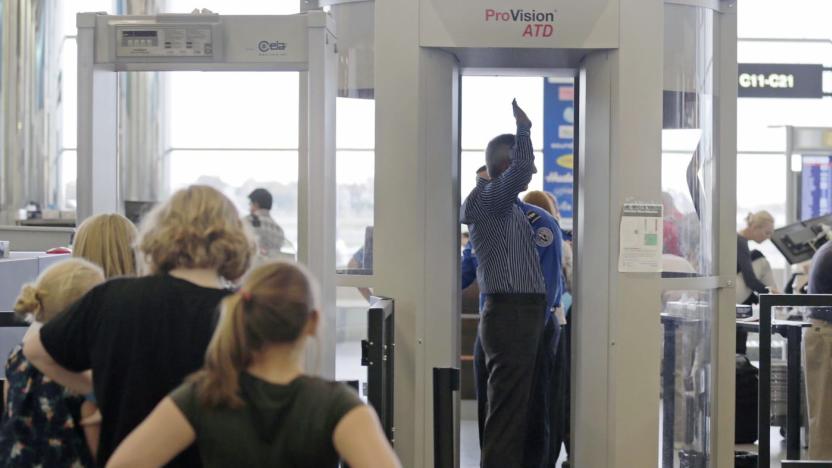
Full-body TSA scans are mandatory for 'some passengers'
The Transportation Security Administration was under pressure to establish rules regarding airport body scanners, and well, the Department of Homeland Security's weighed in. Now the Advanced Imaging Technologies (AIT) using Automatic Target Recognition (ATR) will be mandatory in certain cases. Slashgear notes that prior to this the scanners were opt-in, and one could go through a contactless, non-imaging scan instead. That option will exist, but security agents can insist on mandatory screening "for some passengers." The argument the DHS gives (PDF) is that these scanners are more capable of detecting prohibited, non-metallic items that could be hidden under a few layers of clothing than a metal detector wand would be.

FAA: Don't pack lithium batteries in your checked bag
If you've been packing extra lithium batteries in your checked bag before a flight, you might want to avoid doing so in the future. The FAA warns that storing those batteries in luggage that'll travel in the cargo hold can "present a risk of both igniting and fueling fires." The agency wants airlines to prohibit the practice and to remind travelers at check-in not to stow extras in a checked suitcase. Worried about running out of juice for that toothbrush or point-and-shoot camera? You might want to wait until you land to pick up more batteries. [Image credit: Scott Olson/Getty Images]

New FAA system can track twice as many flights at once
Whoever said "it's the journey, not the destination" obviously lived in a time before air travel. But maybe, just maybe, the Department of Transportation's implementation of the En Route Automation Modernization (ERAM), the "backbone" of the NextGen air-traffic system, could change how we feel about getting on a flight. There are a few things making up ERAM: performance based navigation, automatic dependent surveillance-broadcast (ADS-B) and data comm.

Google knows if your flight has WiFi
Google Flight Search can send you to a random spot on the globe, and now it'll tell you if that fare offers WiFi too. Through a partnership with flight-rating service Routehappy, the search giant will populate your queries with amenity information like the aforementioned internet availability, in-seat power outlets, media streaming to your own device and seat type. Since trips on Virgin America's kitted out planes aren't exactly feasible for every trip, Google's new tools should make it easier to see what flights offer a somewhat comparable experience before you board. [Image credit: Jupiterimages.com]









